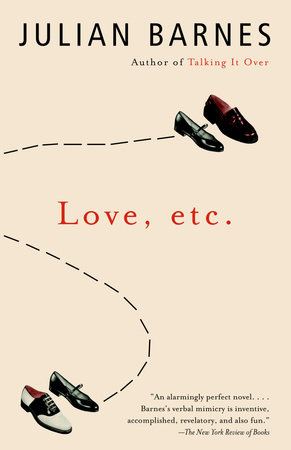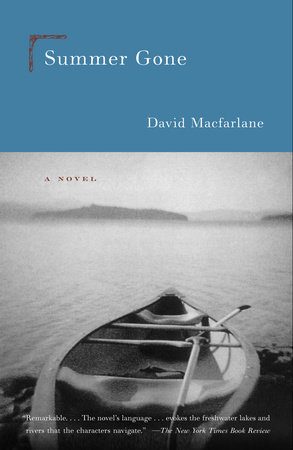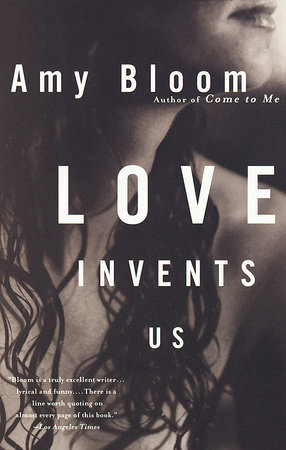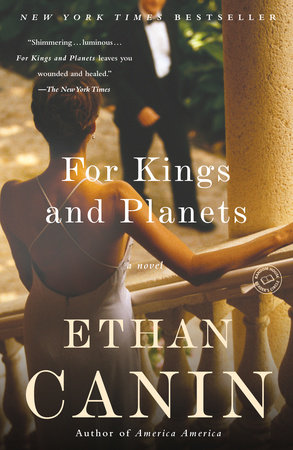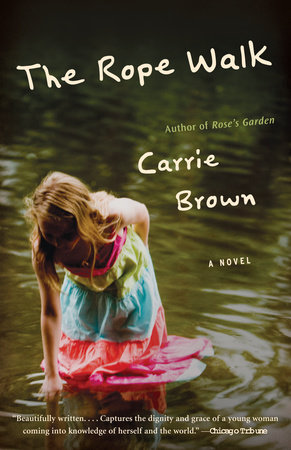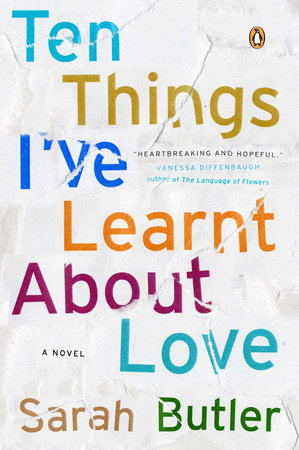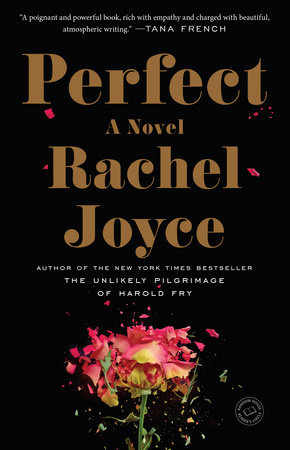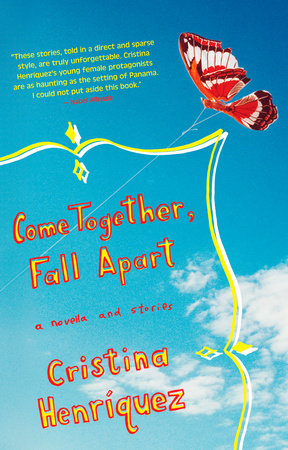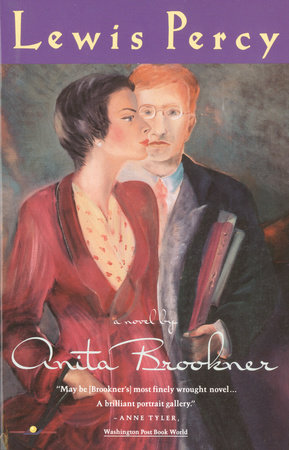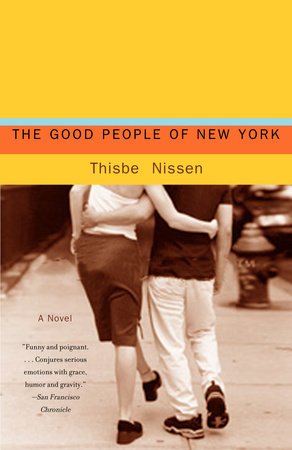A Conversation with
Julian Barnes
author of the novel
LOVE, ETC.
Q: In your new novel, Love, etc., you’ve written about 3 characters first seen ten years ago in Talking It Over. Did you always know you wanted to carry on with their story?
A: No, I’ve always been rather against sequels. I certainly had no idea of continuing the story of Talking It Over, at least for 7 to 8 years. But two things nagged at me at some levels: the fact that readers would ask me what happened afterwards—and, most importantly, would disagree with one another; and secondly, a feeling that there was more to be done with the form I’d developed in that first book—further I could push it.
Q: Was it a difficult technique to have each character talk directly to the reader, pleading his or her case?
A: Well, it’s a very interesting and enjoyable technique, which allows you, as author, to absent yourself entirely from the text. Of course you pull the strings, as always, but every verifiable or non-verifiable fact or theory is left in the hands of the characters. The difficulty lies in the plaiting of the voices: in judging the amount of overlap and contradiction between each statement and point of view; too much, and the result is chaos and an irritated reader; too little, and there isn’t enough narrative fuel.
Q: One of your characters, Oliver, has a theory he calls “Love, etc.” that others disagree with. Can you explain what that is?
A: Oliver—who is a flamboyant and loquacious character—proposes the theory in Talking It Over that the world divides into two categories of people: those for whom love is everything, and the rest of life—work, play, society, politics, friendship—is merely an etc.; and those for whom the etc., the normality of living, is prime, and who attach no more importance to love than to home decorating. Needless to say, he puts himself into the first category, and almost everyone else in the world into the second. But of course, how you define love, and how you use it to justify selfish behavior, are matters to be argued further in the novels.
Q: Do you always know where your story and your characters are headed before you actually sit down to write from their point of view?
A: It varies from book to book. I try not to overplan in advance, in case it turns into the literary equivalent of painting-by-numbers: just fill in the gaps. Writing for me exists in a state of tension between control and freedom, an overall sense of what I’m up to and a sense of the living moment, and of varied possibility, when I sit at the typewriter. With Talking It Over, I did in fact plot it out fairly closely, because I needed to know pretty much where I was going so that I could concentrate on the interweaving of the voices. Even so, the book probably only turned out 80% how I’d decided it would be. With Love, etc. I had more confidence in my ability to handle the technique, so I began with the book plotted no more than perhaps 30%. That’s to say, in terms of what happens from page to page; thematically, I knew much more.
Q: In a recent New Yorker piece about “influences” you wrote of the novelist’s need to undertake each project as if it has never been done before rather than rely on one’s literary influences or to try to work “in the manner of” another writer’s style. Can you speak to that?
A: All writers are influenced by other writers, and all write in a cultural and social continuum; this becomes more and more evident as time elapses. But in order for me to write, I have to convince myself that I’m doing something new—new for me, and new, as far as I am aware, in the wider context of the novel. Sadly, it isn’t always the case; but it’s a necessary naivety, or self-deception. If you felt of a novel you are starting—and which might take 2 or 3 years of your life—that it was merely the equivalent of another episode in a soap opera invented way back when by whoever, that would be not only depressing but terminally discouraging, wouldn’t it?
Q: In lieu of naming direct influences, could you name a few novelists whose work interests you at the moment?
A: Updike, Roth, Lorrie Moore, Penelope Fitzgerald, Ishiguro, Peter Carey.
Q: Was it always your ambition to be a writer or did other professions first attract you?
A: I always thought that to be an artist of any kind was infinitely more important, interesting and glamorous than anything else; I also thought that art was made by other people. It’s abnormal to be a writer or artist, at least in most cultures; it’s not a job handed down the generations. So I assumed that I would have to have a job of some sort. After university, I worked as a lexicographer, then trained as a lawyer. But I started doing a little journalism, and tentatively tried to write something longer on the side. But it took a long time—getting the confidence—so I was a late starter. I didn’t publish my first novel until I was 34.
Q: You used a spiral notebook in writing this book, instead of you usual typewriter. Why?
A: I think I was conning myself into starting the book. I normally work on an electric typewriter, and starting a book is a formal process in a way—you decide, right, that’s enough note-making for the moment, let’s have a go at page one. But as I wasn’t sure I was going to write a continuation of Talking It Over until I had started it, what happened was more: oh, go on, just pretend you’re starting, see how the voices feel after all this time, just do a page . . . And I also found that there was something very apt in taking the voices down by hand—as if I were taking dictation, or as if there was a physical link from their brains to my brain to my arm to the free-flowing ink. At a psychological level I don’t care to examine too closely, it just worked.
Q: Do you have a basic philosophy concerning how you write and/or what you choose to write about?
A: No, I don’t think there’s a “philosophy” of writing; there are only themes and characters to be arranged and expounded within a particular form. Nor do I have a sharp sense of choosing my subjects; they tend to come from a long way back—to have a pre-history, and be brought into the present and the possibility of being written by some moment of ignition. This may be a suddenly-realized formal solution to a problem (as with the present book and its prequel) or merely a new event or insight which when added to the previous possibility-for-a-story sets things off.
Q: Do you see yourself in any of your characters, ever?
A: There’s a bit of me in the main character of my first novel (unsurprisingly), though only in about the first third of that book; then I began to imagine—and to lie—and things took off. It’s always easier to make up a character than copy one from life; and the same applies to yourself. I’m only minimally an autobiographical novelist; at least , that’s my opinion and I’m sticking to it.
Q: What did you think of the French film made of Talking It Over a few years ago?
A: I thought it was a good piece of work. They relocated it to France, and I think that helped. I don’t believe films should be faithful to more than the spirit of novels—it’s a different art form. I stayed away from the filming of Talking It Over, and only met the director afterwards. The first thing I said was, “I hope you have betrayed me.” She smiled and said, “Of course.” Neither of us exactly meant it, but we knew what each of us meant; and in her reply I heard the possibility of a good film.
Q: Are you working on anything now?
A: Yes, a collection of essays, a collection of short stories, a novel and a non-fiction project. I can’t talk about the last three, I’m afraid. But I’ve got my work cut out for the next few years. It comes from being a late starter, I suppose.
